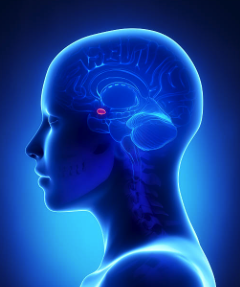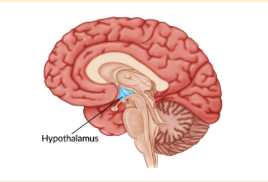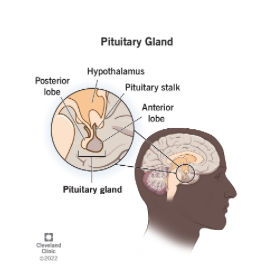Why I chose to specialize in Adrenal Fatigue / Hormonal Imbalance
As I started treating women with different symptoms caused by hormonal imbalance, I noticed a common thread in all of them: All of these women attested to living a very high-paced, stressful life. whether these were physical, emotional or mental stresses, they were all very prevalent.
Knowing this, I decided to examine the issue a little deeper to try and uncover the underlying cause for the many cases of hormonal imbalances that were coming to my clinic.
What I found out is that underneath the dysfunction of the female sex hormones lies a different dysfunction in the adrenal axis.
In my view, adrenal stress is a significantly overlooked aspect of hormonal health. This is a crucial component in the overall picture for my clients dealing with issues such as
-Painful periods
-Missing periods
-Irregular or skipped periods
-Increase cycle length
– PCOS
– Infertility
-Mood swings.
Let’s take a deeper look into what stress can really look like.
A deeper look into the stress response and the HPA axis:
When we talk about ‘stress hormones’ we are really talking about “survival hormones”. These hormones are not ‘bad’ or dangerous, but actually have the purpose of saving our lives. It is easy to understand this process from an evolutionary perspective, say you were a cavewoman in prehistoric times. In this hypothetical scenario, you would want these hormones to be secreted if you walked out of your cave one morning and right in front of you there was a hungry lion. These hormones are the ones that move you to take action and either run away or fight an impending danger, so that as a result- you can continue living.
Lets understand the stress response a little better:
1. The stress response starts in the amygdala, a region in the brain that picks up even the slightest triggers in our surroundings that may be a threat to our survival.

2. The amygdala sends signals to the hypothalamus, another region in our brain that is in charge of the emergency response. The hypothalamus produces corticotropin-releasing hormone (CRH) which then signals the pituitary gland.

3. The pituitary gland releases adrenocorticotropic hormone (ACTH), prompting the adrenal glands to generate cortisol, a hormone vital for various physiological functions.
4. Cortisol plays a crucial role in regulating blood sugar levels, sourced from the liver, aiding individuals in managing prolonged stressors, while concurrently dampening the immune system’s activity.

5. Subsequently, the adrenal glands react by releasing the hormone epinephrine, commonly known as adrenaline, into the bloodstream. This hormone directs blood flow to the muscles, heart, and essential organs, elevating pulse rate and blood pressure, thereby priming the body to confront the imminent threat.
6. In an ideal state, once the perceived threat has passed, cortisol, blood pressure and adrenaline levels go back to their normal amounts.
When you are exposed to constant stressors, your fight or flight response does NOT turn off, which means that your body is being overflowed with these stress hormones, which in the end will tip your system out of balance and into dis-ease.
7 tips to make you stress resilient:
Stress resilience refers to the ability of an individual to adapt and bounce back from stressful situations. It involves coping effectively with stressors and challenges without experiencing long-term negative consequences on mental or physical well-being. Resilience in the face of stress often involves several factors.
Here are a few tips I recommend you incorporate in your life to manage and decrease your stress:
1. get enough hours of sleep:
Getting at least 8 hours of sleep each night is crucial for maintaining optimal physical and mental health. Sleep plays a pivotal role in various bodily functions, including memory consolidation, immune system regulation, and hormone balance. Adequate sleep enhances cognitive function, improving concentration, problem-solving abilities, and decision-making skills. It also promotes emotional well-being by regulating mood and reducing stress levels. Furthermore, sufficient sleep supports cardiovascular health, lowers the risk of chronic conditions such as obesity and diabetes, and fosters overall longevity. Prioritizing 8 hours of sleep each night thus ensures that the body and mind can rejuvenate, recover, and function at their best each day.
2. meditation
Meditation has been shown to significantly impact hormonal balance by reducing the production of stress hormones such as cortisol and adrenaline, while simultaneously increasing levels of feel-good hormones like serotonin and dopamine. This shift helps alleviate the physiological effects of chronic stress, such as lowered immune function and disrupted sleep patterns. By calming the sympathetic nervous system and activating the parasympathetic nervous system, meditation fosters a state of relaxation that supports the regulation of hormones related to metabolism, digestion, and reproductive health. Regular meditation practice thus plays a pivotal role in promoting overall hormonal harmony and well-being.
3. healthy nutrition
Healthy nutrition plays a crucial role in maintaining hormonal balance by providing the body with essential nutrients and supporting proper metabolic function. Diets rich in whole foods such as fruits, vegetables, whole grains, lean proteins, and healthy fats help regulate blood sugar levels, which in turn stabilizes insulin production and reduces the risk of insulin resistance. Balanced nutrition also supports the production and regulation of hormones like thyroid hormones, estrogen, progesterone, and testosterone.
in short: stay away from overly processed foods, decrease your sugar intake, and increase your protein and lean fat intake.
4. reduce stimulants such as caffeine. Caffeine stimulates the release of stress hormones such as cortisol and adrenaline, which can disrupt the body’s natural hormone production and regulation. By cutting back on caffeine intake, individuals can support a more stable cortisol rhythm throughout the day, which in turn promotes better sleep quality and reduces feelings of anxiety and irritability. Moreover, excessive caffeine consumption has been linked to hormonal imbalances such as disrupted thyroid function and irregular menstrual cycles in women. Opting for alternatives like herbal teas or decaffeinated beverages can help maintain a more consistent hormonal environment, leading to improved overall health and well-being.
if you need your cup of coffee, all is good, just try to push off your first cup. instead of drinking it the minute you wake up, drink it an hour later.
5. omega 3 fatty acids
Omega-3 fatty acids play a crucial role in supporting hormonal balance by reducing inflammation and supporting healthy cell function throughout the body. Specifically, omega-3s help regulate the production and activity of hormones involved in various bodily processes, such as insulin sensitivity, metabolism, and reproductive health. Incorporating sources of omega-3 fatty acids, such as fatty fish (salmon, mackerel), flaxseeds, chia seeds, and walnuts, into the diet can therefore support overall hormonal health and contribute to improved well-being.
6. screen time
Reducing screen time, especially in the evening hours, can significantly benefit hormonal balance by promoting better sleep quality and overall well-being. Exposure to the blue light emitted from screens, such as phones, tablets, and computers, can suppress the production of melatonin, the hormone responsible for regulating sleep-wake cycles.
Excessive screen time can contribute to increased stress levels and disrupt the body’s cortisol rhythm, which plays a crucial role in regulating metabolism, immune function, and overall hormonal balance. By reducing screen time, particularly in the hours leading up to sleep, individuals can support healthier hormonal function, leading to improved energy levels, mood stability, and overall quality of life.
7. exercise
Physical activity, whether aerobic or resistance training, stimulates the release of endorphins—often called “feel-good” hormones—which help reduce stress and promote a positive mood. Regular exercise also supports insulin sensitivity, helping to stabilize blood sugar levels and reduce the risk of insulin resistance. This, in turn, promotes more balanced levels of hormones involved in metabolism, such as insulin and leptin. Additionally, exercise can contribute to better sleep quality, which is essential for maintaining a healthy hormonal profile.
What is my treatment approach to heal adrenal fatigue?
Clients that come to my clinic with hormonal imbalance will get a comprehensive all around evaluation and diagnosis, acupuncture treatment, herbal adaptation, and lifestyle recommendations to regulate adrenal activity and reduce chronic stress from their life.

